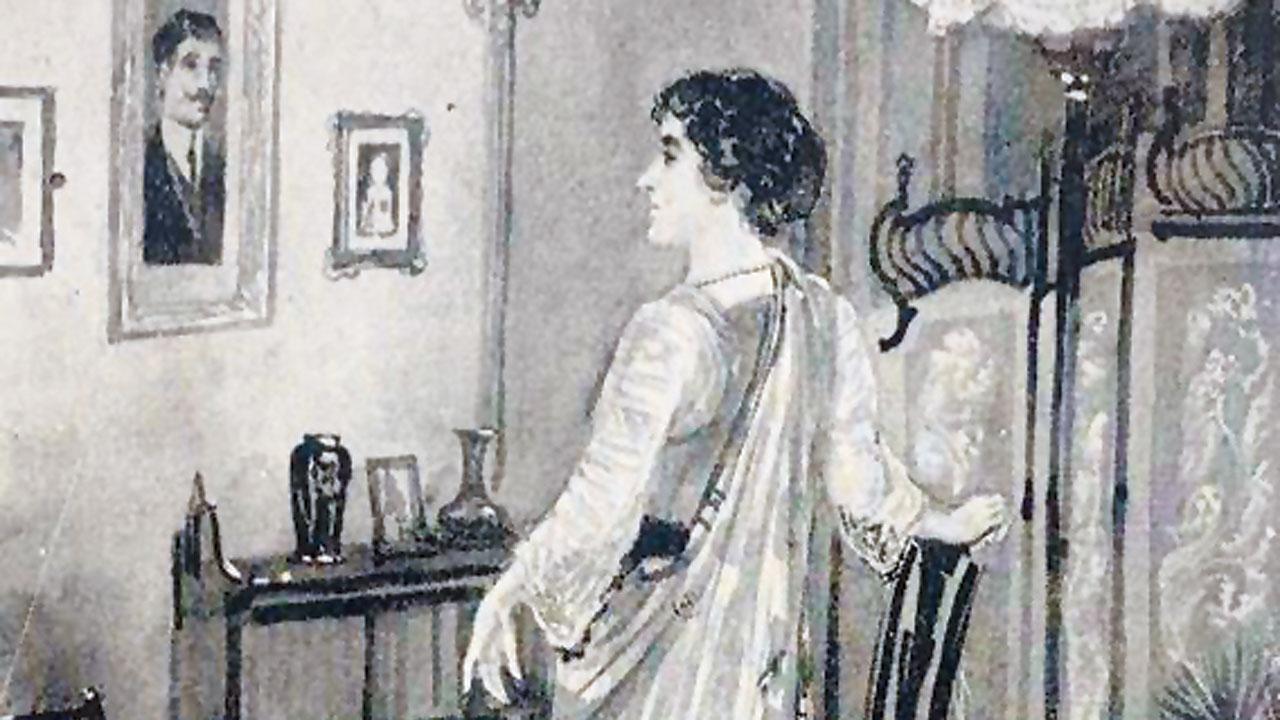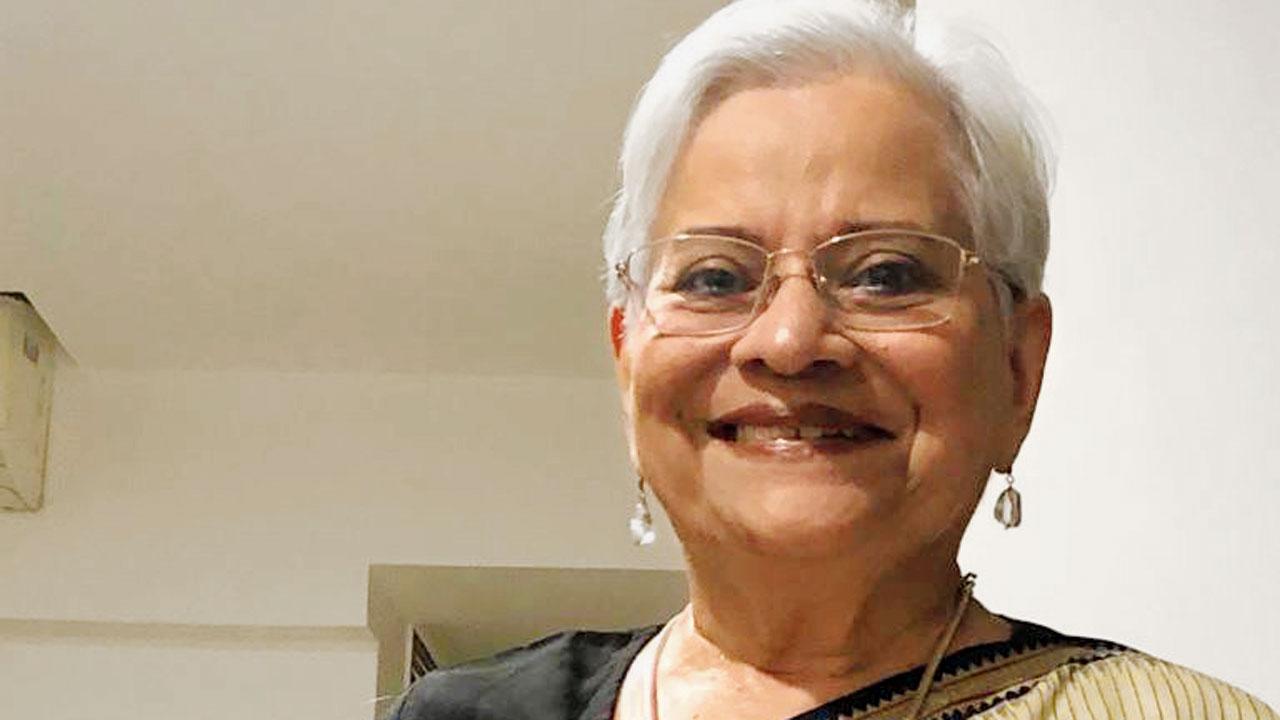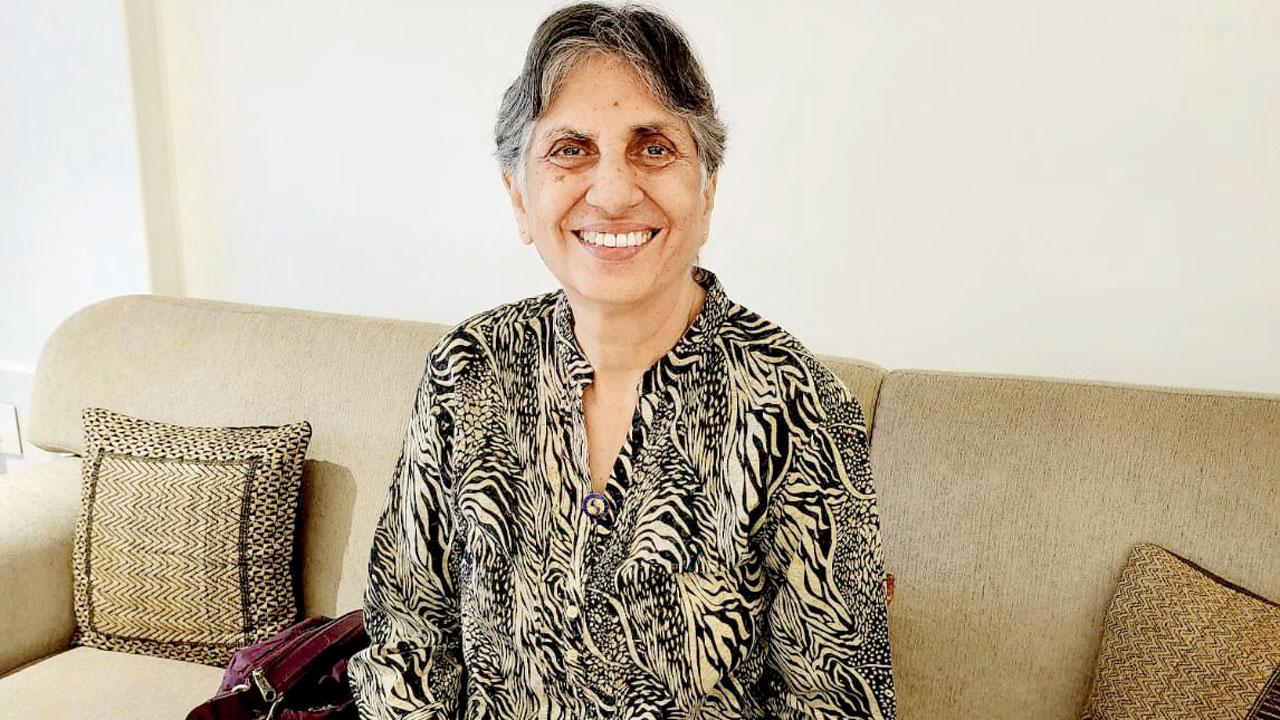A talk at the Asiatic Society of Mumbai tomorrow offers a deep-dive into four noteworthy Gujarati texts including two by Parsi scholars, their distinct writing styles, tone and treatment, and relevance

Sketches by MV Dhurandhar illustrating the Gujarati original Dukhi Dadiba. Pics courtesy/Aban Mukherji
With 456 spoken languages, India ranks fourth in the list of world’s most linguistically diverse nations. So, it comes as no surprise that the country has rich literature in several languages. Shining a light on Gujarati books are Tulsi Vatsal, an independent researcher, writer, and editor, and Aban Mukherji, a freelance writer and translator. The duo is set to deliver a talk on Two Cultures, One Language: Four 19th Century Gujarati Texts tomorrow at the Asiatic Society of Mumbai (ASM).
ADVERTISEMENT
Organised by The Literary Club of the ASM, this session will focus on four books — Dukhi Dadiba and the Irony of Fate by Dadi Edulji Taraporewala, Karan Ghelo by Nandashankar Mehta and Relating to Dahigauri by Narmada Shankar Dave and Travels in Iran by Kavasji Dinshaw Keasna; which have been co-translated by Tulsi Vatsal and Aban Mukherji.

The duo, for the past several years have been reading Gujarati texts and translating those that have interested them. “Tulsi and I find these four books very interesting, and we have always been keen on the 19th century Gujarati literature. The four books that we have chosen for our talk are from the second half of the nineteenth century. This was a period when English education and British policies impacted every aspect of Indian life,” shares Mukherji.
Vatsal points out that Indian writers, in the 19th century, had begun to move away from traditional religious themes, and had begun experimenting with the form of the modern novel. “In Karan Ghelo, we can see the influence of writers like Sir Walter Scott, while Dukhi Dadiba reads like a Victorian romance. Both texts reflect the great unease generated by Western ideas regarding the condition of women,” she shares, adding that the threat to patriarchal norms is evident in Narmada Shankar Dave’s text Relating to Dahigauri. Interestingly, Karan Ghelo, which is the first literary novel written in Gujarati, has not been out of print since 1866.
Elaborating about the part of the talk that mentions ‘two cultures, one language’, they explain that though the medium of language is Gujarati for these books, Kavasji Dinshaw Keasna and Dadi Edulji Taraporewala belonged to the Parsi community. Which meant that they brought in their own cultural nuances to the story they told, which were different from how the storytelling progresses in the text written by Nandashankar Mehta and Narmada Shankar Dave, who were Gujaratis.

Tulsi Vatsal
The talk will also delve into the fact that the 19th century gave birth to Gujarati travel literature as several Parsis and Gujaratis travelled around the world and wrote about their experiences. “Enterprising and adventurous youth undertook journeys to distant lands. Like Keasna, who spent two years in Iran in the 1970s, about which he wrote a book [Travels in Iran]. His travels in Iran provide an invaluable account of the handful of Zoroastrians who remained faithful to their religion and culture in a hostile environment,” the duo shared.

Aban Mukherji
Tomorrow’s conversation will witness several such interesting nuances, the relevance of the four books will be examined; and the writers’ distinctive style, tone and treatment will be probed. “Each book has a distinctive style of writing and how the story proceeds, which people will be able to understand when we read out excerpts in the session. When it came to translating these books, we have been faithful, and we have retained the styles of the writers,” said Vatsal. “We hope that the talk will ignite an interest in 19th century Gujarati literature, as very few people these days read the original Gujarati text. We hope that people understand and appreciate that we have managed to translate these classics by retaining the flavour of the original book,” Mukherji signs off.
 Subscribe today by clicking the link and stay updated with the latest news!" Click here!
Subscribe today by clicking the link and stay updated with the latest news!" Click here!







